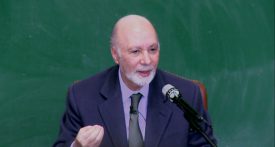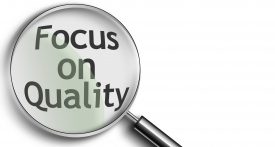Search results for tag "Ethical practice" - 10 answer(s)
311
Vote
If someone was to ask us: “are you ever negligent?”, we would probably be tempted to nod in agreement, if only to make sure we do not come out as smug. But things would get much more complicated if we were asked to answer the follow-up question: “but in which areas and in what ways are you negligent?”. Because how are we supposed to identify in which situations we tend to be negligent and to what degree (occasionally/systematically, minor/serious), when by definition, negligence results from a lack of attention and thus cannot be clearly and directly perceived? Or since, in other words, we do not attach any importance to it.
Of course, there are times where the thin voice of our moral conscience will make itself heard in the back of our mind, right when we are about to do something negligent. But it will likely instantaneously drown in the nonstop muddy flow of our quasi-automatic thoughts, and lack the energy to push us to exercise our willpower to thwart that negligence.
Read more
321
Vote
If one quality had to be singled out as being primarily required to live an ethical life, it would without question be courage. This courage Aristotle considered to be “the first of human qualities because it is the quality which guarantees the others.”
Indeed, so many good intentions get crushed by the fear to expose oneself or to break the bonds that tie us to others! So many ambitious programs are carefully reflected upon and put forward only to wane and erode away in the face of weariness! Because courage is essential every step of the way: to make the inaugural move that marks the beginning, to dominate the fear of exposing oneself, to spontaneously assert one’s freedom while remaining loyal to the initial impetus, and finally to survive the long solitary struggle against despondency.
Read more
306
Vote
 Keeping a logbook can prove useful in many ways for the practice of ethics. It provides precious help in the process of self-knowledge.
The first reason why putting down experiences is useful is obvious: in addition to helping us fight against forgetfulness, it helps us focus on our daily experiences, encouraging us to analyse them and to set up plans of action for the next day, so that we may correct our mistakes.
Example: I am playing with my 5-year-old daughter and my 8-year-old son. We split into teams, my son on one side, my daughter and I on the other. Slowly but surely I get carried away and I forget that my opponent is an 8-year-old child. I win hands down, as my daughter watches with admiration, and I don’t even give my son the chance to score the couple of points that would have allowed him to save face. Only at the end of the game do I suddenly realise the negative emotion that has invaded me—it looks a lot like pride. Too late. My son is humiliated, he doesn’t feel like playing anymore and will refuse to play this game from now on.
Read more
566
Vote
If ethics is about principles, practicing ethics is about method. In this field, we can assume that not just any method will do. So we have to figure out which method will be the most efficient to get us closer to our goal of progressing towards spiritual perfection.
For the purposes of this post, I will assume that the reader is familiar with the various psychological forces at play in the paradigm of the process of perfection, and in particular with the concept of imperious self (IS), which may be defined as an impulsive force systematically opposed to spiritual progress. The IS is protean—it creeps in through the cracks created by our moral faults or lack of attention. It takes on different looks depending on the person and the circumstances. One day it will oppose itself to your spiritual work head-on, and the next, like a chameleon, it will pass itself as a spiritual thought and deceive your reason.
Read more
995
Vote
After reading the interview with Bahram Elahi on altruism on this website, I was struck by the idea that “Those who care about their process of perfection should include the practice of altruism in their spiritual program”. In my first post, I tried to understand what altruism really was and how to tackle this practice in a daily program. Now I would like to explore the second half of the question: why practice altruism?
Read more
416
Vote
Some time ago, on this website, I came upon the interview with Bahram Elahi on altruism. One sentence in particular caught my attention: “Those who care about their process of perfection should include the practice of altruism in their spiritual program”.
Over the years that I had been “interested” in my perfection I had sensed that trying to help others was a practice that conformed to divine ethics. Only now, however, did I grasp the importance of this practice, expressed in the term “should”, and the notion of a “spiritual program”.
I decided to focus more deeply on the matter and at once was faced with two questions: why and how.
Read more
1988
Vote
Professor Elahi regularly lectures in Europe and North America. In October 2010, his talk in Paris focused on two key concepts in Ostad Elahi’s thought: self-knowledge and Perfection. Self-knowledge refers to active, concrete, in vivo knowledge of the powers that constitute our being, a knowledge that becomes more refined through the practice of true ethics, based on correct divine principles. According to Professor Elahi, everything else results from this, including the level of development reached by the “metabrain”, as well as the understanding and freedom that one can enjoy here and in the other world.
Read more
487
Vote
In order to gauge the ethical quality of our conduct, there are many factors to be considered, such as the motivation and intention behind a certain course of action. But how does our intention matter, if in most cases we are not even sure what it is? In what sense can intention affect our spiritual growth? These are delicate issues. Here are some reflections from one of our readers that we found worth sharing.
Read more
758
Vote
There is more to Benjamin Franklin (1706-1790) than the American icon we know today. A printer by trade, he became famous as a gifted inventor, a scientist, a civic activist, a statesman, a diplomat (he was the first American ambassador to France), and the author of several essays on matters ranging from politics to marriage or the game of chess. Now, besides having invented the lightning rod and counting among the Founding Fathers of the United States, Franklin led a personal quest into the spiritual roots of morality—an aspect of his life which is perhaps less commonly celebrated.
Read more
806
Vote
To do good, as we all know, is not only helping, supporting and comforting others. It is also and above all doing it with as selfless an intention as possible, by trying to put aside our own egotistical interests. I say “as selfless an intention as possible,” since experience shows that perfect selflessness is an ideal hardly ever attainable. Making this an absolute condition for a truly ethical act, may hinder our motivation for something that we know is out of our reach anyway. To speak of acts as-selfless-as-possible is not only to recognise that what seems to be generosity is often no more than disguised ambition
Read more
« Prev - Next »
|

 News
News Podcast
Podcast













Recent Comments